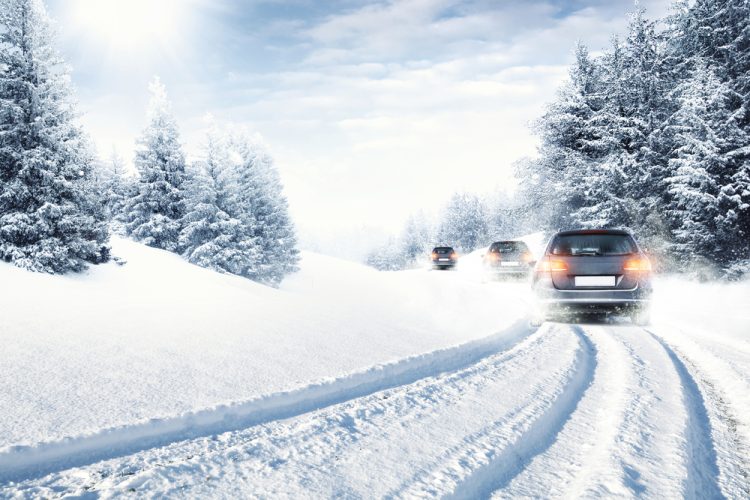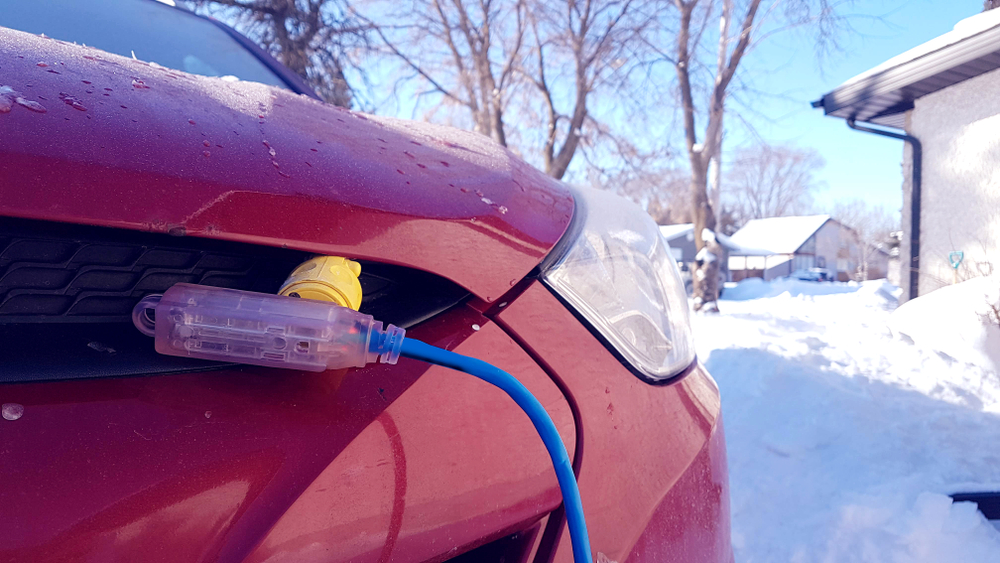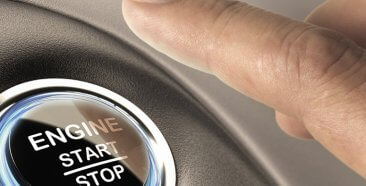
People often use words like “brutal” and “ruthless” to discuss the harsh winter weather in certain areas. Certain regions experience extreme temperatures that can cause significant harm to both residents and their belongings, including vehicles.
In the past, people used to let their old cars warm up for a few minutes on cold winter mornings. They did this before driving to work or taking their kids to school. Nowadays, some say modern cars don’t need warming up and it can even be harmful. So, should you periodically start your car in extreme cold or let it warm up before driving?
Just as an aside, this advice does not apply to electric vehicles. If you have a power plug at home, plug in your EV and let it run for a few minutes. Save time on battery by using home power to warm car interior instead of car battery.
Here’s how to care for your car in extreme temperatures and during winter storms. Choosing the right auto insurance is always a good place to begin when considering the best vehicle care. Consider getting roadside assistance in case you need a tow truck. You don’t want to stay in these temperatures any longer than necessary.
The Impact of Cold Weather on Car Batteries
Freezing temperatures cause everything to slow down. This includes the systems operating your car behind the scenes. Your battery is in charge of starting the chemical processes that make your vehicle run. In very cold weather, things slow down.
Your battery works harder to start, and your engine uses more power from the tired battery.
Your cold car may lead to dead batteries, which will lead to the engine crank or starter motor not working. This leads to you being late to work and your kids being late to school! There are some things you can do if you live in a place where freezing temperatures are the norm.
- Engine block heater: People who live in Alaska plug in an engine block heater if they must turn their vehicle off. You can purchase a battery blanket for much less to keep your battery warm overnight.
- Park in a garage: Parking your vehicle indoors will help. If that’s not possible and you cannot plug a blanket in, try to park away from the wind.
- Charge it up: A fully-charged battery works much better in extreme cold. Take it to a shop for a charge before cold weather sets in.
Effects of Low Temperatures on Car Fluids
Just as with everything else in the cold, car fluids slow down and become thicker. The oils and lubricants your engine depends on for smooth operations can become like molasses. When you start your car, oil coats all metal surfaces so nothing is grinding.
Starting your car in cold weather takes longer, which is why it causes more engine wear. You’ll notice your car running rougher, as well as reduced fuel mileage in this situation.
Choosing the right oil makes a big difference. Synthetic oil is a good option for those who live in very cold winters. It doesn’t freeze easily and maintains the same thickness. Always check your owner’s manual for specifics around what oil you should choose.
Some other fluids to consider are:
- Transmission fluid: Most new cars have an automatic or continually variable transmission (CVT) which drivers will notice working harder in cold weather. Manual transmission are even more affected.
- Gear lube: From the two-speed automatic in the 1960s to today, car manufacturers are increasing the number of gears each year, it seems. Most vehicles have been five and six gear sets and a series of gear trains, all which run better when well lubricated.
- Diesel fuel: There are a lot of pluses for using diesel fuel: using it in extremely cold temps is not one of them. Because diesel contains wax, it tends to crystallize and clog important parts, such as fuel lines and the fuel filter. You must use an additive diesel anti-gel to keep things running smoothly.
- Gasoline fuel: Because your gasoline-powered vehicle depends on smooth chemical processes to run, it’s important to ensure you don’t end up with moisture in your gas tank, a by-product of cold temps and condensation. Any water in the gas tank may freeze, which can cause a blockage in your fuel system. There are additives you may consider using to help prevent this.
These are not all of the systems impacted by a winter of low temps. In order to avoid serious damage to your automobile, have a good understanding of how you can best prepare your car or truck and take care of it.

Debunking the Myth: Warming Up the Car Before Driving
So, is it better to warm up your vehicle during a cold snap – or not? Well, it depends.
True or False: “Modern Cars Don’t Need to Warm Up”
Mostly true. Most of today’s cars and trucks do not have carburetors, which is why people in the past liked to give their vehicles a good warmup before driving. Those who love a classic may still have a carburetor car.
In a very simplified definition, carburetors power the engine through mixing air and fuel into just the right formula to cause combustion. When it’s too cold, the air freezes and condensation may form and cause a moisture problem in fuel lines and on the carburetor itself.
Modern cars don’t use a carburetor so they don’t need warming up in cold weather. Experts say it’s best to give it 30 seconds after you start it and let it warm up by driving it. For the most part, in a new car, the answer to the question “should you start your car in extreme cold?” is no.
True or False: “Frequent Starts in Cold Weather are Beneficial”
False. When you (and your car) are facing the cold conditions and low temperature of winter, it is not beneficial to go out and start your car periodically to let it warm up. Most likely, you’ll be causing your battery to work overtime leading to a decreased charge and you’ll be wasting gas.
Considerations of Starting Your Car in Extreme Cold
Because you are going to be asking a lot of your cold battery (unless you kept it warm with a battery blanket), turn off all components that get their power from the battery, such as windshield wipers, headlights, stereo system or radio, HVAC and defroster.
Practical Tips for Extreme Cold Weather
If you live in an area where winter brings extreme weather, you’ll need to get your auto winterized. Wherever you live, it’s best to keep up with regular maintenance year round so your vehicle is always in good condition, but those who subject their rides to colder weather, snow and ice should take some extra precautions.
Checking Winter-Readiness Condition
Before winter hits, make a stop at the shop for an inspection of and full charge for the battery. Inspect your tires to ensure they are winter ready and use appropriate snow tires when necessary. Swap out your wiper fluid for a specially-formulated winter mix. Change the oil to a winter-proof or synthetic type and replace the oil filter.
These simple solutions can save you time and money once that blizzard rolls in to town.
Protect Your Vehicle in Extreme Cold with Freeway Insurance CTA + Office Locator
Just like it is a fact that carrying the right insurance can protect you financially all year round, taking steps to protect your dependable steel steed in the depths of winter is also necessary. At Freeway Insurance, we can help you with cold weather tips as well as finding the insurance that fits your needs and budget, even if your driving record is less than perfect!
Give us a call today at (800) 777-5620, check us out for a fast and free insurance quote online or stop by one of our convenient locations for a cup of coffee.



